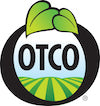5 Tips to Eating Healthy, Delicious Seasonal Foods
As our bodies prepare for the change in seasons, so too do the seasonal offerings change in the marketplace. Summer's ripe, juicy melons symbolic of the long lazy days, are replaced with cranberries and pumpkin pies spicing up the cool air. We'll set our clocks forward and back to accommodate the farmers feeding us with their cornucopia of delicious seasonal eats. So why then do we still demand summer fruits in the winter?
Historically, we've always eaten with the seasons. Aside from milk, eggs and meat, the rest of our diets were made up of wholesome, fresh fruits, vegetables, grains and legumes pushing up through the soil at different times throughout the year. But nowadays, walk into any supermarket and you'll find year-round access to, well, everything—especially those out of season fruits that sit in perfect stacks in mid-December, flown in from faraway places like Chile or Argentina. While these may seem a bargain deal at the register, they take their toll in other ways. Just imagine what a ripe bunch of grapes or bananas must go through to get to your supermarket from deep in South America. All the excessive traveling is harsh on the environment, using lots of fossil fuels to reach us, and the freshness and nutrient density of those foods decrease every day between the field and your fork.
Try these five easy tips for maximizing the seasonal bounty for fresh and tasty foods:
Shop locally: The best way to know you're getting the freshest and most nutritious local foods is to buy from regional growers. This can mean trading in a trip to the supermarket for a nearby farmer's market, a CSA membership (community supported agriculture), or your very own yard! Local produce is always fresher, often tastier and can be less expensive than what's available in the supermarket, too. You'll benefit even more if the local produce you buy is organically grown. Organic food reduces your exposure to pesticides (and the farmer's and the earth's!) and contains more nutrients and flavor.
Be bold: So you're kind of a picky eater. Aren't we all? Be bold and try new foods; the more you experiment, you just might surprise yourself. After all, if you eat fresh whole foods at the peak of the season, when they taste their best, their flavors are a whole heck of a lot different than something that was picked green and ripened on a truck! If melons aren't in season, see what fun you can have with pears or a quince. Be open…it's a delicious world.
Store it: If you simply can't imagine a day without strawberries, then freeze or can them for the winter. It's easy to find a local class to learn how to make preserves, and if you just choose to freeze the berries, they can keep for months. (While they won't be best eaten raw like fresh berries, you can add them to your morning smoothie or dessert recipes.)
Tune in: Although you may think you're really in the mood for something out of season, you just may be hungry for something nutritious! If you're craving cucumbers in winter, it may be your dry skin needing a silica boost. See if leeks or celery do the trick instead.
Reward: Making changes—especially to our diet—can be a little bit of a challenge, but making it fun by experimenting with exciting in-season foods is a great way to ease into healthy and delicious habits. Embrace the season's freshest foods (which are also usually the cheapest!). Before you know it your friends might mistake you for a foodie. The simple secret: eating in-season, fresh, natural and organic food is the healthiest and most delicious reward there is.
Photo: faith goble
Leave a comment
Comments will be approved before showing up.



